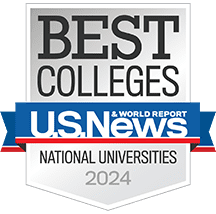Certificate
Graduate Certificate in Supply Chain Management
Learn to efficiently manage the flow of products from raw material sourcing to manufacturing, transportation, and inventory management in the graduate certificate in Supply Chain Management. Explore the six pillars of supply chain management and learn how they intersect with other skillsets like logistics, IT, and financial planning. You’ll work directly with faculty and industry leaders to create plans that deliver products in the most cost-effective, streamlined way possible.
Let us help you succeed.
*Indicates a required field.
Top-ranked, career-focused education in a flexible format.
At a Glance
Classes Begin
March 31
Term Length
10 Weeks
4 Course Certificate
Tuition
$13,344
6 Course Certificate
Tuition
$20,016

Top-Ranked University by U.S. News & World Report
Featured Instructors
Free Application
University College is committed to educational access, and given the difficult circumstances currently impacting millions of people, we are waiving application fees.
Skills You’ll Learn
Apply the six pillars of supply chain management to real-world issues
Analyze and develop sustainable systems for distributing a variety of products, including closed loop supply chain
Manage logistics and supply chain processes with cutting-edge technology
Specialized Graduate Certificate in Supply Chain Management requires completion of 16 credit hours (4 courses).
|
4 Concentration Courses |
Graduate Certificate in Supply Chain Management requires completion of 24 credit hours (6 courses).
|
4
Concentration Courses
|
2
Elective Courses
|
Sample Schedule
Plan out your schedule and determine your preferred timeline for completing your master’s degree—finish in as few as 18 months or take up to five years.
| Year 1 | Q1 | Q2 | Q3 | Q4 |
|---|---|---|---|---|
| 4-Course Certificate Classes | 2 | 2 | 0 | 0 |
| 6-Course Certificate Classes | 3 |
3 |
0 |
0 |
| Year 1 | Q1 | Q2 | Q3 | Q4 |
|---|---|---|---|---|
| 4-Course Certificate Classes | 1 | 1 | 2 | 0 |
| 6-Course Certificate Classes | 2 |
2 |
2 |
0 |
| Year 1 | Q1 | Q2 | Q3 | Q4 |
|---|---|---|---|---|
| 4-Course Certificate Classes | 1 | 1 | 1 | 1 |
| 6-Course Certificate Classes | 1 |
2 |
2 |
1 |
Interested in a master’s degree?
Explore our Master of Science in Supply Chain Management with a concentration in Supply Chain Management.
Take a Course Before You Apply
We know how important it is to get started when you’re ready and that’s why you can enroll in a course before you officially apply.
Career Outcomes
Predicted outcomes for graduates of Supply Chain Management
The Association for Supply Chain Management reports the demand for supply chain professionals exceeds supply by six to one, with the U.S. Bureau of Labor Statistics anticipating the number of jobs in logistics will grow by 26%.
Harvard Business Review found U.S. supply chain employs 37% of the workforce and over 40 million people. These supply chain jobs have higher than average salaries and contribute to much of the innovative activity in the economy.
According to Supply Chain Management Review, one-third of organizations globally plan to make sustainability-related improvements to their supply chain due to pressures from customers and to unlock financial benefits.
Job Titles
Supply Chain Manager Salary: National Average
$89,067
(Glassdoor)
Get Ahead with Career Services
One-on-one career coaching and mock interviews
Job database dedicated to DU students and alumni
Résumé and cover letter guidance
Hear from Our Students
Theme: Job Satisfaction
Supply Chain Management – University of Denver’s University
Graduate program entirely online with weekly Zoom sessions.
Flexible Online Classes
We understand the demands of balancing work, friends and family, and school can be challenging. That's why at University College, you can complete your program entirely online. Our online learning platform makes it easy to work anywhere at any time.
Accreditation

Higher Learning Commission
University College programs maintain the highest level of accreditation offered by The Higher Learning Commission, one of the regional accrediting bodies recognized by the federal government. The University of Denver and all of its academic programs are regionally accredited by this commission, and regional accreditation is the highest standard for universities in the United States.
Take the Next Step











